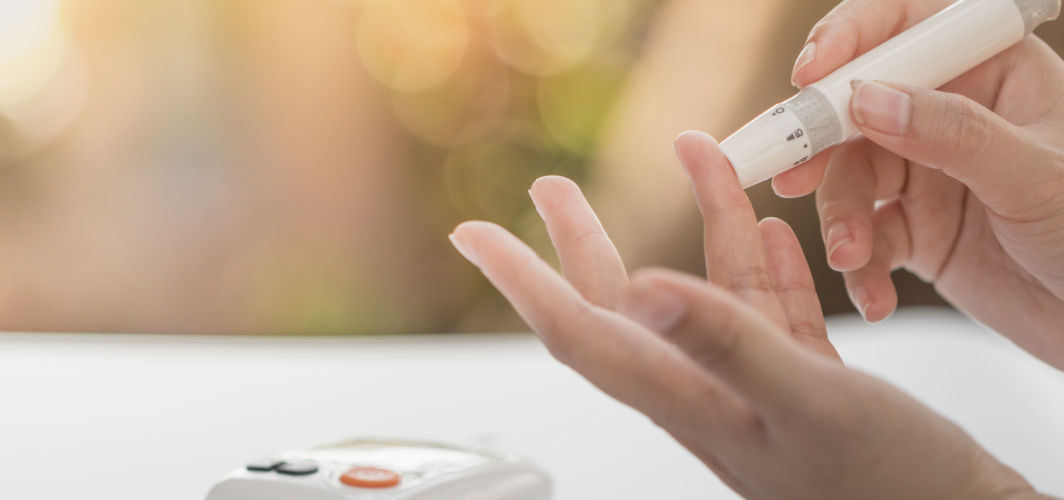Diabetes Management
Taming Your Blood Sugar: Aerobic or Resistance Exercise?
1 min read
By Apollo 24|7, Published on - 23 February 2024
Share this article
0
0 like
.jpg?tr=q-80)
In 2023, a government study revealed that 11% of the Indian population is diabetic. Managing blood sugar levels is a lifelong commitment that requires consistent efforts. Physical activity plays a major role in this process. The two types of exercises - aerobic and resistance - and how they influence your blood sugar levels are crucial.
Aerobic Exercises and Blood Sugar
Aerobic exercises include brisk walking, jogging, swimming, and cycling. These activities can cause blood glucose levels to drop during the activity due to increased glucose uptake by muscles for energy. Furthermore, glucose levels may remain lower for up to 24 hours following the workout. So, incorporating a brisk walk every day or swimming sessions a few times a week can help manage your blood sugar effectively.
Resistance Exercises and Blood Sugar
Resistance exercises include activities like weightlifting, calisthenics, and bodyweight movements. Unlike aerobic exercises, they do not cause a significant decline in blood glucose during the activity. However, resistance exercise can lead to more sustained glucose stabilization over time, possibly reducing the risk of hypoglycemia and improving overall glycemic control. This makes such exercises a vital part of your diabetes management program.
Balancing Aerobic and Resistance Exercises
While aerobic and resistance exercises offer benefits for managing blood sugar levels, they differ in their impact on glucose levels and stability. Combining both types of exercise is often recommended for optimal health outcomes. Therefore, setting up an exercise routine that includes aerobic and resistance training could improve diabetes control.
Diabetes Management
Consult Top Diabetologists
View AllLeave Comment
Recommended for you
.jpg?tr=q-80)
Diabetes Management
Whey Protein and Diabetes: Benefits, Alternatives, and Best Protein Sources
Navigating your way through diabetes management? Here's an insight - whey protein can be a game-changer. It aids in stabilising blood sugar levels and enhancing insulin secretion. But remember, variety is essential. Alternate between whey protein, plant-based proteins, eggs, fish, poultry, and legumes for a diverse diet. Take your first step towards a healthier you with the Apollo Super 6 programme.

Diabetes Management
Should Non-Diabetic People Check Their Blood Sugar Levels?
Regular blood sugar monitoring benefits non-diabetic individuals by aiding in early detection of conditions like prediabetes, allowing proactive measures. Family history of diabetes prompts risk assessment and lifestyle changes. While non-diabetics don't need frequent monitoring, occasional checks help in early detection, prevention, and health awareness.

Diabetes Management
Managing Diabetic Neuropathy: Tips For Relieving Pain and Discomfort
While there's no cure, symptom management for relieving pain and discomfort is crucial for managing diabetic neuropathy. Tips include controlling blood sugar levels through a healthy lifestyle, medications prescribed by your doctor, regular exercise, and proper foot care. Pain relief options may include prescription pain relievers, antidepressants, and anticonvulsants. Consult a healthcare professional to create a personalised plan for managing diabetic neuropathy, which can help improve your quality of life.
Subscribe
Sign up for our free Health Library Daily Newsletter
Get doctor-approved health tips, news, and more.
Visual Stories

8 Fruits That are Incredibly Healthy for Diabetes
Tap to continue exploring
Recommended for you
.jpg?tr=q-80)
Diabetes Management
Whey Protein and Diabetes: Benefits, Alternatives, and Best Protein Sources
Navigating your way through diabetes management? Here's an insight - whey protein can be a game-changer. It aids in stabilising blood sugar levels and enhancing insulin secretion. But remember, variety is essential. Alternate between whey protein, plant-based proteins, eggs, fish, poultry, and legumes for a diverse diet. Take your first step towards a healthier you with the Apollo Super 6 programme.

Diabetes Management
Should Non-Diabetic People Check Their Blood Sugar Levels?
Regular blood sugar monitoring benefits non-diabetic individuals by aiding in early detection of conditions like prediabetes, allowing proactive measures. Family history of diabetes prompts risk assessment and lifestyle changes. While non-diabetics don't need frequent monitoring, occasional checks help in early detection, prevention, and health awareness.

Diabetes Management
Managing Diabetic Neuropathy: Tips For Relieving Pain and Discomfort
While there's no cure, symptom management for relieving pain and discomfort is crucial for managing diabetic neuropathy. Tips include controlling blood sugar levels through a healthy lifestyle, medications prescribed by your doctor, regular exercise, and proper foot care. Pain relief options may include prescription pain relievers, antidepressants, and anticonvulsants. Consult a healthcare professional to create a personalised plan for managing diabetic neuropathy, which can help improve your quality of life.



